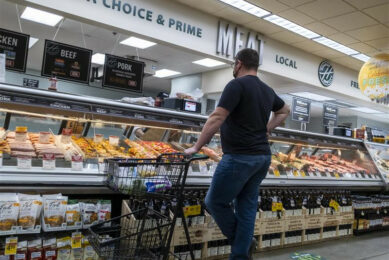NPPC opposes climate change measure
The National Pork Producers Council has indicated its opposition to climate change legislation, which it said will raise the cost of pork production. The NPPC made their comments in a letter sent to House Agriculture Committee Chairman Collin Peterson, D-Minn., and Ranking Member Frank Lucas, R-Okla.
The “American Clean Energy and Security Act of 2009,” H.R. 2454, could come up for a vote in the House of Representatives next week. Among other things, the bill would set a limit, or cap, on the amount of greenhouse gases that specific large industries such as energy utilities could release to the atmosphere.
A business that has an emissions amount that falls below its cap could sell the unused amount up to the cap as offset credits; one that exceeds its cap would need to buy credits or reduce its emissions. In addition, uncapped sectors could sell offset credits for adopting practices and technologies that reduce emissions. H.R. 2454 treats agriculture as an uncapped sector.
“America’s pork producers are intensely concerned over any policy proposals that will further raise the cost of production,” said NPPC. “In particular, producers fear the impact that H.R. 2454 will have on the cost of electricity, diesel fuel, grain, propane, animal health products, fertiliser, chemicals, farm equipment and materials such as steel and concrete that are necessary for the continued operations of their farms and well-being of their animals.
“Pork producers are already losing money for every pig sold – currently about $30 per hog – and any additional costs will drive them deeper and more firmly into financial despair.”
NPPC anticipates an increase in energy and input costs of more than 20% under the proposed climate change legislation, and it doesn’t believe that revenues from the sale of greenhouse gas offset credits will balance that increase. In addition, the organisation is wary of the impact the legislation would have on pork producers’ ability to compete fairly in world export markets.
If Congress insists on passing a climate change bill, said NPPC, a number of areas in the bill must be improved before the organisation could support it, including that the bill designate the US Department of Agriculture, rather than the Environmental Protection Agency, as the lead agency on the design and implementation of the agricultural greenhouse gas offset credits program and on the development of any regulations affecting livestock producers.
The bill also needs to more clearly address and account for the tremendous advances that livestock producers already have made in reducing their carbon footprint. NPPC pointed out that since 1990 production agriculture’s greenhouse gas emissions have increased only 3.5% while US meat production has increased 40%; since 1948, manure generated by US meat-producing animals has been reduced 25% while production of meat has increased 700%.
Related website
• NPPC
©











